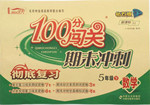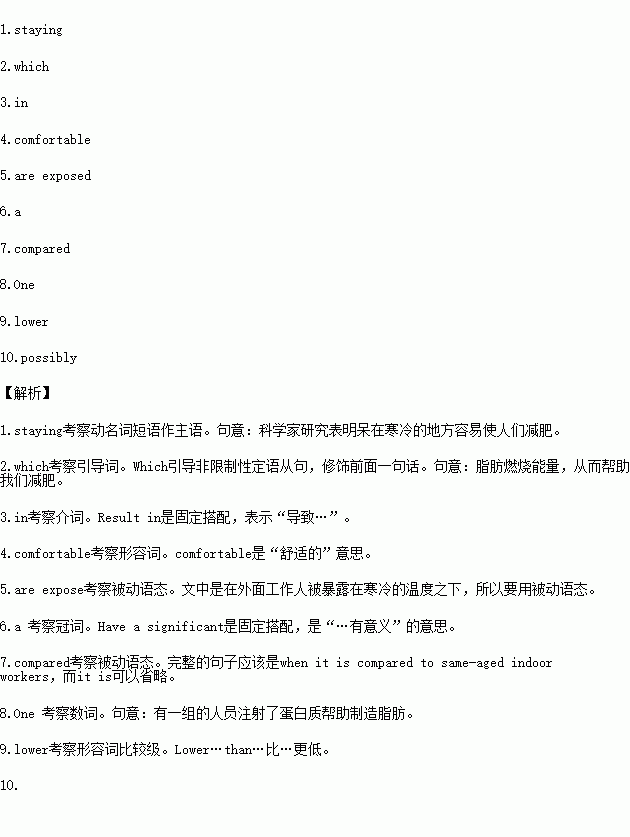题目内容
阅读下面材料, 在空白处填入适当的内容或括号内单词的正确形式。
Scientists have discovered that_1. (stay) in the cold could help us lose weight. Researchers at the University of California found that exposure to the cold increases levels of a protein that helps form brown fat--the type of fat that produces heat and keeps us warm. Brown fat burns energy, 2. helps us lose weight. White fat stores extra energy, which results 3. weight gain. The researchers said that because air conditioning and heating give us constant, 4. (comfort) temperatures, our body’s need for brown fat has decreased. They found that: “Outdoor workers in northern Finland who 5. (expose) to cold temperature have 6. significant amount of brown fat when 7. (compare) to same-aged indoor workers.” The research was conducted on two different control groups of mice. 8. group was injected with the protein that helps create brown fat. This group later gained 30% less weight after both groups were fed high-fat diets. The researchers say this could be good news in the fight against obesity. People who are obese have 9. (low) levels of brown fat than thinner people. Head researcher Hei Sook Sul said, “This protein could become an important target for research into the treatment and prevention of obesity and obesity-related diseases.” She added, “If you can somehow increase levels of this protein, you could 10. (possible) lose more weight even if eating the same amount of food.”
 100分闯关期末冲刺系列答案
100分闯关期末冲刺系列答案
